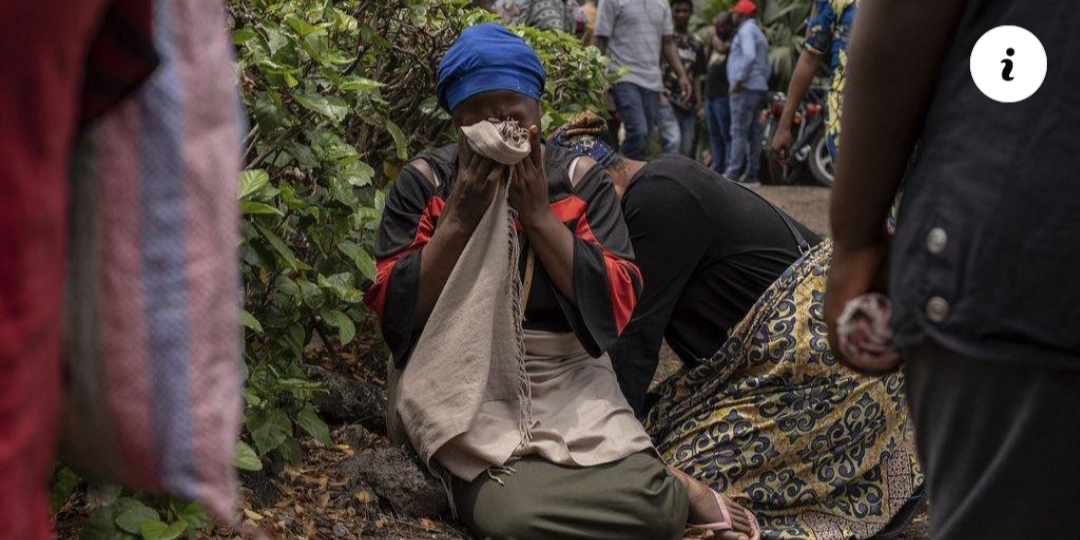Women weep in the port of Goma, DRC, after a ferry carrying hundreds of people capsized on arrival, 3 October 2024 –
A boat carrying scores of passengers capsized on Lake Kivu in eastern Congo on Thursday, killing at least 50 people, witnesses told The Associated Press.
It was not immediately clear exactly how many people were on board or how many perished but witnesses said they saw rescue services recover at least 50 bodies from the water. They said 10 people survived and were taken to the local hospital.
The boat, overloaded with passengers, sank while trying to dock just meters (yards) away from the port of Kituku, the witnesses said. It was going from Minova in South Kivu province to Goma, in North Kivu province.
Local authorities said that the rescue efforts continued and the death toll remained unknown for the moment. In February, the majority of the 50 passengers aboard a wooden boat were presumed dead after the vessel capsized on Lake Kivu.
“This boat was carrying about a hundred people when it had the capacity for about thirty passengers,” the governor of the province of South Kivu Jean-Jacques Purusi told a local radio station following the accident.
It was the latest deadly boat accident in the central African country, where overcrowding on vessels is often to blame. Maritime regulations also are often not followed.
Congolese officials have often warned against overloading and vowed to punish those violating safety measures for water transportation. But in remote areas where most passengers come from, many are unable to afford public transport for the few available roads.
In June, an overloaded boat sank near the capital of Kinshasa and 80 passengers lost their lives. In January, 22 people died on Lake Maî-Ndombe and in April 2023, six were killed and 64 went missing on Lake Kivu.
Witnesses said the boat that capsized on Thursday was visibly overcrowded.
“I was at the port of Kituku when I saw the boat arriving from Minova, full of passengers,” Francine Munyi told the AP. “It started to lose its balance and sank into the lake. Some people threw themselves into the water.”
“Many died, and few were saved,” she added. “I couldn’t help them because I don’t know how to swim.”
The victims’ families and Goma residents gathered at the port of Kituku, accusing authorities of negligence in the face of growing insecurity in the region.
Since the fighting between the armed forces and the M23 rebels made the road between the cities of Goma and Minova impassable, forcing the closure of the passage to trucks transporting food, many traders have resorted to maritime transport on Lake Kivu. It’s an alternative considered safer than road traffic, which is threatened by insecurity.
But according to Elia Asumani, a shipping agent who works on this line, the situation has become dangerous:
“We are afraid,” he told the AP. “This shipwreck was predictable.”
Bienfait Sematumba, 27, said he lost four family members.
“They are all dead. I am alone now,” he said, sobbing. “If the authorities had ended the war, this shipwreck would never have happened.”
The survivors, about 10 of them, were taken to Kyeshero Hospital for treatment. One of them, Neema Chimanga, said she was still in shock.
“We saw the boat start to fill with water halfway,” she recounted to the AP. “The door of the boat opened, and we tried to close it. But the water was already coming in, and the boat tilted.”
“I threw myself into the water and started swimming,” she said. “I don’t know how I got out of the water




